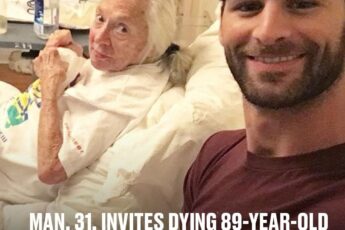In 1987, a young woman from Switzerland named Corinne Hofmann set out on what was supposed to be a dream vacation — a safari in the heart of Kenya, alongside her fiancé Marco. They had planned it for months, imagining the wild landscapes, the animals, the sunsets. But fate had a different kind of adventure waiting for Corinne. It wasn’t Marco who would capture her heart under the African sky.
While on the trip, Corinne laid eyes on a man unlike anyone she had ever met. He stood by a fire in the Samburu village — tall, proud, with skin the color of red earth and a gaze that was both steady and unreadable. His name was Lketinga Leparmoryio, a warrior from the Samburu tribe, close relatives of the Maasai. And for Corinne, one look was all it took. Against all logic, she fell in love.
In an impulsive and dramatic decision, Corinne left Marco behind and chose Lketinga. But falling in love was the easy part. Building a life with a man from a tribe that followed centuries-old traditions turned out to be far more difficult than she had imagined. Romance quickly gave way to the raw reality of life in the African bush.
Lketinga was kind, but also strict and rooted in his culture. He was not swayed by Corinne’s discomfort. When she complained about the heat, the insects, or the unfamiliar customs, his reply was calm but cutting: “If you don’t like it, go back to your Marco.” Still, Corinne stayed.
She sold her business back home, gave up her apartment, her comforts, her world. She moved into a straw hut — a manyatta — in a remote Kenyan village. No hot water, no electricity, no toilet, no medicine. Laundry was done by hand, meals cooked on open flames. She lit her home with kerosene lamps and learned to live with the sound of hyenas in the distance. In time, she opened a small grocery shop for the village and slowly gained the respect of the locals. She even acquired Kenyan citizenship.
Her love story, as difficult as it was, found its most joyful moment when their daughter, Napirai, was born. A beautiful girl with her father’s features and her mother’s determined eyes. But something shifted in Lketinga after her birth. He became suspicious, jealous, and controlling. He doubted that Napirai was truly his child. He grew cold, mistrustful — especially toward the men who came to buy from Corinne’s shop.
The tension became unbearable. Corinne, who had given up everything to be with him, found herself emotionally trapped in a relationship consumed by suspicion and silence. After two years, in 1990, she made the most difficult decision of her life. She took her daughter and fled — back to Europe, back to Switzerland, back to structure and sanity.
Years passed. Corinne wrote a book about her story, The White Masai, which became a bestseller. In 2005, during the filming of the movie adaptation, she returned to Kenya. She met Lketinga again — now older, softer, carrying the weight of time on his shoulders. To her surprise, he greeted her without anger. He had long since moved on, remarried three times, and continued living his traditional life.










